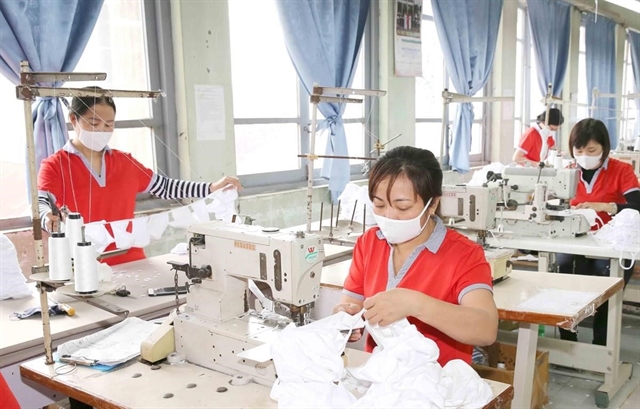.jfif) Opinion
Opinion

Deputy Minister of Labour, Invalids and Social Affairs Lê Quân talks to Vietnamplus online newspaper about measures to keep workers employed amid difficulties caused by the COVID-19 pandemic

|
| Many workers have been put on leave due to difficulties caused by the COVID-19 pandemic. — Photo for illustration Vietnamplus |
Deputy Minister of Labour, Invalids and Social Affairs Lê Quân talks to Vietnamplus online newspaper about measures to keep workers employed amid difficulties caused by the COVID-19 pandemic
The third quarter is thought to see peak unemployment due to a drop in export orders. What do you think about this?
The trend to cut jobs will depend on each occupation, sector and business. In this situation, businesses often classify employees in three categories. The first group includes workers who will have their contracts terminated immediately to help businesses cut costs. The second group includes workers who will be furloughed or put on leave so that businesses still keep these workers. This group of workers is often hard to recruit while costly to train. The last group includes key employees.
The drop in employment in July and August will primarily affect workers who are easy to employ and train. Businesses will cut jobs when they do not have orders. When a pandemic happens, this group of workers is the most vulnerable.
What policies does the Government have to support workers?
The plan to support businesses in the last six months of the year will be built based on the real employment situation.
Those workers who lost jobs because their businesses are encountering difficulties due to COVID-19 will get unemployment allowance.
The Government will have policies to encourage businesses to get loans to pay furlough grants for workers who were furloughed or put on leave following Government Resolution No42 on helping individuals and businesses affected by the COVID-19 pandemic.
As of July 16, only one business has received credit to pay furlough grants to their workers. What has the ministry done to deal with this problem?
It is forecast that more businesses will encounter difficulties in the last six months of the year. As a result, businesses are allowed to borrow money to pay salaries for their employees for a maximum of three months. The time for workers being put on leave is counted between January 1, 2020, to December 31, 2020, instead of only April, May and June as regulated before.
We have also loosened some regulations for business to get loans. Previously, only businesses who suffered financial difficulties could apply for the loans but now all businesses who have workers put on leave can get the loans.
The ministry is adjusting loan conditions towards removing difficult conditions and will consult the Ministry of Finance, the State Bank of Việt Nam and the Bank for Social Policies before submitting to the Government for approval.
The ministry supports loosening loan conditions because when a business gets a loan to pay for workers, the workers will not lose their jobs which means the State will not have to deal with unemployment and the Fund for Unemployment Insurance will not have to pay unemployment allowance for workers. So when we earmark the State budget to provide loans for businesses to pay salary for workers, we will get other social benefits.
What measures are needed to minimise the negative impacts of the COVID-19 pandemic on the labour market?
An economic development cycle has an average of 3-5 years. So it is necessary to abide by the regulation to fully pay unemployment insurance within the three years of good development of the economy. As a result, when the economy enters a recession period and the number of unemployed workers increases, we will use the fund for unemployment insurance to pay workers to ensure their minimum living standards. Apart from paying allowance for workers, we can also use the fund to train or change jobs for workers.
During the recession period, both employees and employers need to prepare for the new development cycle so training and re-training for workers are very important.
The COVID-19 pandemic does not follow any development cycle but has created a crisis that has left many workers unemployed. However, if we can put the pandemic under control and have proactive preparation, we can have appropriate human resources for the next development period when the economy is forecast to boom again after the pandemic ends. — VNS




